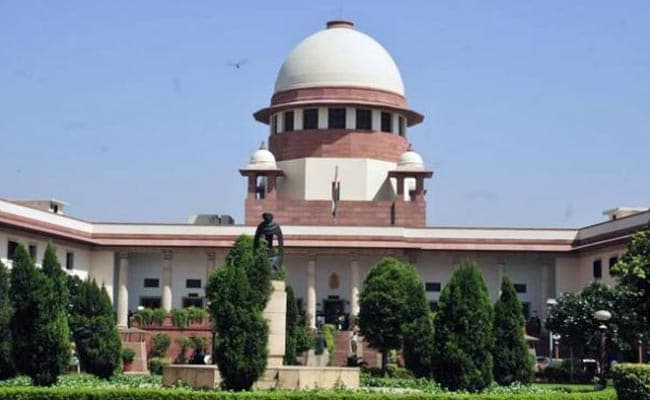
Odisha government will move to Supreme Court to resolve the Mahanadi dispute.
Bhubaneswar:
The Odisha government is mulling to approach the Supreme Court for setting up of a tribunal under the law on inter-state water disputes to resolve the Mahanadi dispute with Chhattisgarh, an official statement said on Saturday.
"We will explore all options. We will leave no stone unturned to protect the interests of Odisha. That would certainly include the legal option of approaching the apex court for setting up of Tribunal under Interstate Water Dispute Act 1956," said a state government release quoting Chief Minister Naveen Patnaik who was in New Delhi for a tripartite meeting convened by Union Water Resources Minister Uma Bharti between the two Chief Ministers to resolve the dispute.
The meet remained inconclusive.
The serious environment threats posed by these projects will be decisively challenged in all suitable forums including National Green Tribunal (NGT), said the statement.
It quoted Mr Patnaik as saying that he had called a meeting of the cabinet in Bhubaneswar on Sunday, where they "will decide steps to take. We will leave no stone unturned in the interest of people of Odisha".
He said that he wanted Chhattisgarh to immediately stop work on its barrages, but his demand was not accepted at the meeting.
"Government of Chhattisgarh, despite all persuasive efforts, remained adamant at not agreeing to the just and equitable demands of Odisha," said the release.
It said Uma Bharti could not prevail upon Chhattisgarh "to agree to the just concerns" of Odisha and stated that the Union Ministry can at best play an advisory role and not issue any binding directions.
"Hence, the tripartite meeting could not succeed, leaving Government of Odisha with no option than to explore other options for the livelihood and wellbeing of about two-third of Odisha's population dependent on agriculture and directly or indirectly impacted by Mahanadi," said the release.
"We made it very clear that the ongoing projects on the upstream of Hirakud are absolutely unacceptable to us. These projects pose serious threats to the fragile ecological hot spots of Odisha and to the livelihood in 16 districts and 65 per cent of our population.
"As these projects have inter-state ramifications, Odisha should have been consulted; and any clearances at any level should have taken the ecological and economic ramifications into account. But this has not taken place.
"Hence, we wanted immediate stopping of all ongoing works and revisiting of the whole issue in a transparent manner," it added.
"We will explore all options. We will leave no stone unturned to protect the interests of Odisha. That would certainly include the legal option of approaching the apex court for setting up of Tribunal under Interstate Water Dispute Act 1956," said a state government release quoting Chief Minister Naveen Patnaik who was in New Delhi for a tripartite meeting convened by Union Water Resources Minister Uma Bharti between the two Chief Ministers to resolve the dispute.
The meet remained inconclusive.
The serious environment threats posed by these projects will be decisively challenged in all suitable forums including National Green Tribunal (NGT), said the statement.
It quoted Mr Patnaik as saying that he had called a meeting of the cabinet in Bhubaneswar on Sunday, where they "will decide steps to take. We will leave no stone unturned in the interest of people of Odisha".
He said that he wanted Chhattisgarh to immediately stop work on its barrages, but his demand was not accepted at the meeting.
"Government of Chhattisgarh, despite all persuasive efforts, remained adamant at not agreeing to the just and equitable demands of Odisha," said the release.
It said Uma Bharti could not prevail upon Chhattisgarh "to agree to the just concerns" of Odisha and stated that the Union Ministry can at best play an advisory role and not issue any binding directions.
"Hence, the tripartite meeting could not succeed, leaving Government of Odisha with no option than to explore other options for the livelihood and wellbeing of about two-third of Odisha's population dependent on agriculture and directly or indirectly impacted by Mahanadi," said the release.
"We made it very clear that the ongoing projects on the upstream of Hirakud are absolutely unacceptable to us. These projects pose serious threats to the fragile ecological hot spots of Odisha and to the livelihood in 16 districts and 65 per cent of our population.
"As these projects have inter-state ramifications, Odisha should have been consulted; and any clearances at any level should have taken the ecological and economic ramifications into account. But this has not taken place.
"Hence, we wanted immediate stopping of all ongoing works and revisiting of the whole issue in a transparent manner," it added.
Track Latest News Live on NDTV.com and get news updates from India and around the world

